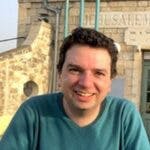Published: 1 April 2025
Last updated: 1 April 2025
There's a bridge in northern Israel, spanning the main artery of Road 6, that bears a banner with three simple words: "No Other Land." As I drove past it last week, returning to Jerusalem after a holiday in Haifa, I found myself pondering: was this message placed by a Jew or an Arab?






Comments1
Jonathan Keren-Black1 April at 07:28 am
Very powerfu and informative as always, Ittay – thank you.